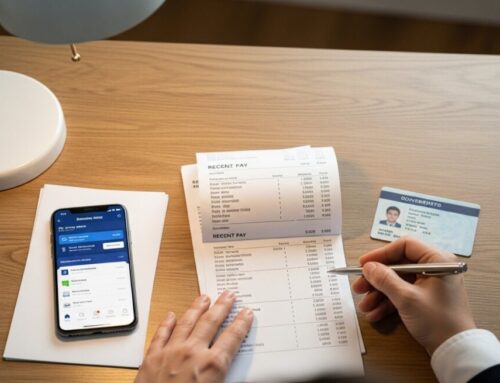

When unexpected expenses hit, many people consider loans to bridge the gap. Two popular options are payday loans and personal loans. Understanding how each works can help you choose the right path for your financial needs.
This comprehensive article answers common questions about payday loans and personal loans, providing detailed insights, comparisons, benefits, drawbacks, and tips. You will also find how to apply, qualify, and manage repayments effectively. For quick help with loans, call (833) 501-3363 or visit AdvanceCash.com.
What Are Payday Loans?
Payday loans are small, short-term cash advances typically under $1,000. They are designed to be repaid by your next paycheck, usually within two weeks or less. These loans do not require collateral and often do not involve a credit check, making them accessible to many borrowers quickly.
Payday loans are popular for urgent financial needs such as emergency car repairs or unexpected medical bills. However, they carry very high interest rates—often exceeding 300% APR—and can come with fees that add to the total cost.
Due to the short repayment period, payday loans are considered risky for borrowers who cannot repay on time, potentially leading to cycles of debt if rolled over repeatedly.
What Are Personal Loans?
Personal loans are usually larger sum, longer-term loans, generally ranging from $1,000 to $50,000 or more depending on your creditworthiness and lender policies. They offer repayment terms typically between 1 to 5 years.
Before approval, personal loans require a credit check and proof of income to ensure that you can afford to repay the loan. They usually have lower interest rates (typically 6% to 36% APR) compared to payday loans, making them more affordable over time.
Personal loans can be used for a variety of purposes including debt consolidation, home improvements, or major purchases. Many lenders report your payment history to credit bureaus, which can help improve your credit score with reliable repayments.
Key Differences Between Payday Loans and Personal Loans
Payday loans and personal loans both provide access to borrowed money, but they differ significantly in terms of amounts, repayment terms, costs, and qualification requirements.
Loan Amounts and Terms
-
Payday Loans: These loans are usually small, typically ranging from $100 up to $1,000. They are designed to be short-term, with repayment expected by your next payday or within about two weeks.
-
Personal Loans: Personal loans offer much higher borrowing limits, typically starting at $1,000 and going up to $50,000 or more. Repayment terms are longer, often ranging from 1 to 5 years, which allows borrowers to spread out payments and manage finances more easily.
Interest Rates and Costs
-
Payday Loans: Payday loans often carry extremely high interest rates, sometimes as much as 300% to 400% annual percentage rate (APR). These high rates and associated fees make payday loans very expensive if not repaid promptly.
-
Personal Loans: Personal loans generally offer much lower interest rates, typically ranging between 6% and 36% APR depending on creditworthiness and lender policies. This makes personal loans a more affordable borrowing option over time.
Qualification and Application Process
-
Payday Loans: They are easier to qualify for, usually requiring just proof of income, an active checking account, and valid ID. Credit checks are often not required, making payday loans accessible even to those with poor credit.
-
Personal Loans: These loans involve a more thorough application process including a credit check, income verification, and assessment of existing debts to determine eligibility and terms.
Repayment Flexibility
-
Payday Loans: Payday loans must be repaid in full in a lump sum, usually on your next payday, leaving little flexibility and potentially causing repayment challenges.
-
Personal Loans: Personal loans come with fixed monthly payments over a longer period, giving borrowers more manageable repayment schedules.
Impact on Credit
-
Payday Loans: Most payday lenders do not report to credit bureaus, so they generally don’t help build your credit. However, if you default and it goes to collections, it can damage your credit.
-
Personal Loans: Payments on personal loans are usually reported to credit bureaus, and on-time payments can help build and improve your credit score.
Accessibility and Usage
-
Payday Loans: Best used only for urgent emergency cash needs due to their high costs and short repayment period.
-
Personal Loans: Suitable for larger expenses such as debt consolidation, home improvements, or major purchases because of their longer-term nature and lower cost.
Common Questions About Payday Loans and Personal Loans
How quickly can I get payday loan funds?
Payday loans fund rapidly—often within minutes or hours after approval—because lenders do less verification. This can be very helpful in emergencies.
Are payday loans expensive?
Yes. Payday loans have very high fees and interest rates that can exceed 300%, meaning borrowing small amounts for short periods can become very costly.
Can payday loans harm my credit?
They don’t usually help build credit since payday lenders rarely report to credit bureaus. However, if you fail to repay, the lender may send your debt to collections, which damages your credit.
How long do I have to repay a payday loan?
Typically, payday loans are due in full on your next payday, usually within two weeks of loan issuance.
Can I get a personal loan with bad credit?
Getting a personal loan with bad credit is difficult but possible through specialized lenders. Interest rates may be higher based on your credit profile.
What is the benefit of a personal loan over a payday loan?
Personal loans have lower interest rates, larger loan amounts, longer repayment terms, and can help build your credit history.
How do I apply for a personal loan?
You fill out an application providing financial details, consent to a credit check, and submit income verification. Lenders evaluate your capacity to repay before approval.
How to Qualify for Payday and Personal Loans?
Payday Loans Qualification:
-
Minimum age 18
-
Valid identification
-
Proof of steady income
-
Active checking account for electronic repayment
Since payday loans do not always require credit checks, they are accessible for many borrowers.
Personal Loans Qualification:
-
Age 18 or older
-
Good credit score (or specialized lender for poor credit)
-
Proof of income (pay stubs, tax returns)
-
Stable employment history
-
Low existing debt-to-income ratio
How Do Loan Repayments Work?
Payday loans usually require a lump sum payment by the next paycheck. Lenders withdraw repayment amounts electronically from your bank account. Because of the short term, repayment can be challenging if finances are tight.
Personal loans have structured repayments, often monthly installments over years. This can ease financial strain by spreading out payments.
What Happens If I Miss a Payment?
Missing payments on payday loans can lead to fees, higher interest, and debt collection. For personal loans, missing payments affects credit scores and may lead to increased penalties or default.
Should I Use Payday Loans or Personal Loans?
If you need a small amount urgently and can repay quickly, payday loans can provide fast access but at a high cost. Use them sparingly.
Personal loans are better for larger needs or if you require more time to repay, helping you save money on interest and build credit.
Helpful Locations and Zip Codes for Loan Services
People from many states can apply through services like AdvanceCash.com, including zip codes such as:
-
10001 (New York, NY)
-
90001 (Los Angeles, CA)
-
60601 (Chicago, IL)
-
77001 (Houston, TX)
-
33101 (Miami, FL)
Loan availability and amounts can vary by location due to state regulations.
Where to Get Fast Loans?
For trustworthy personal and payday loan offers, visit AdvanceCash.com or call (833) 501-3363 for assistance. You can compare loan products and get connected with lenders who fit your needs.
Learn more about borrowing choices from ExpressCash’s Borrowing Options Guide.
Frequently Asked Questions (FAQs)
Q1: Can I get approved for a payday loan quickly?
Yes, payday loans often have minimal requirements and can be approved rapidly.
Q2: What is the typical interest rate on a payday loan?
Rates can exceed 300% APR in many states, making them very costly.
Q3: Are personal loans reported to credit bureaus?
Yes. Regular payments on personal loans can improve your credit score.
Q4: Can I refinance a payday loan?
Some lenders allow rollovers but it can lead to higher debt due to fees.
Q5: How can I apply for a payday or personal loan safely?
Use trusted platforms like AdvanceCash.com and verify lender credentials.





